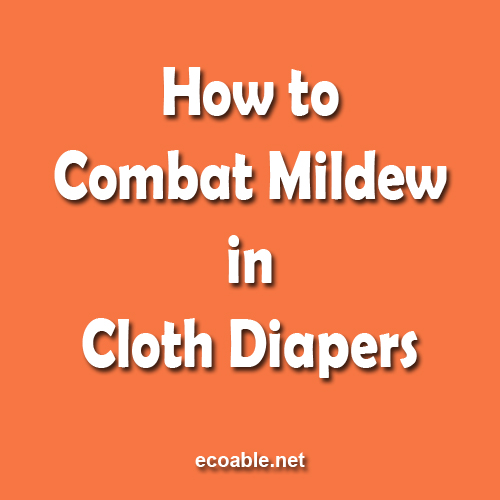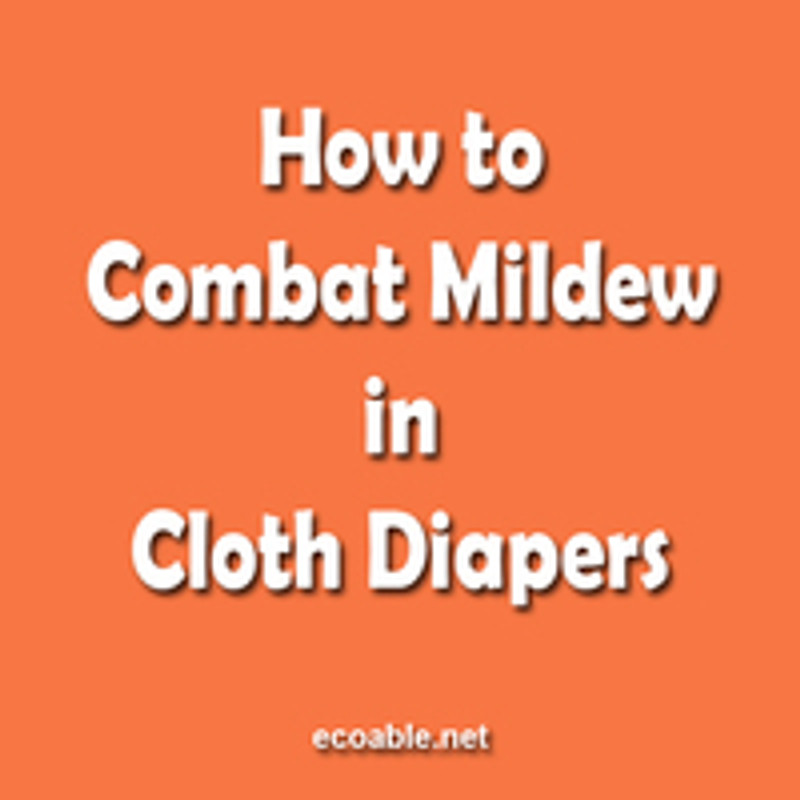
Have you encountered mildew in your cloth diapers? Not to worry too much, there are several easy ways to help this situation. First, let's try to figure out why mildew accumulates in cloth diapers, and what you can do to prevent it.
Preventing Mildew in Cloth Diapers
Mildew can form in cloth diapers from several things. Mildew will grow in high/warm temperatures and humidity. We find storing reusable diapers in the dry cloth diaper pail is the best method to prevent mildew amongst other things.
Soiled/Wet reusable diapers that are left to sit, are more likely to produce mildew. Try to keep cloth diapers in the dry pail for no more than a few days.
If you live somewhere with high humidity and climate, consider washing your cloth diapers more often. You also should always double check that your cloth diapers are completely dry before storing them for your little one to wear.
Another great tip for preventing mildew is to remove your washed cloth diapers from the washing machine to dry right away. Also, be sure to have a great drying process for your reusable diapers with no delay in drying them.
Getting Rid Of Mildew in Cloth Diapers
There are many ways to remove mildew from cloth diapers. We recommend the following to help with your mildew.
Tea Tree Oil: Tea tree oil is a anti-fungal. You can find tea tree oil at your local health foods store, or online.
To use tea tree oil on your mildew, simply create a mixture of water (1 cup) and add tea tree oil (1 teaspoon) into a mixture bottle, or spray bottle. Then, shake and spray onto the mildew in the cloth diaper. After letting the spot sit for a few hours, you'll notice the spot will still remain- but it will be disinfected. Simply wash your cloth diaper again, and your mildew will be clean.
Lemon Juice and Salt: For general mildew spots and stains use this mixture to remove the stain. You will need:
Salt (2 tsp.)
Lemon Juice (1 tsp.)
Create this mixture into a spray bottle, and run onto the mildew spots. Let this mixture sit onto the spots and stains for a few hours. After a few hours you will notice the spot is gone, and your diaper is ready to use again after a full regular wash.
Oxygen Bleach Powder: You can find this product and your local grocer. You will want to follow the directions on the package for best results.
For a full load/stash of Mildew: If you have several cloth diapers that need to have the mildew removed, we recommend creating this mixture to use on a pre wash setting with your whole large load of cloth diapers.
Fill up the washer with COLD water. Then add 1/4 cup Baking Soda, and 2 Tsp Tea Tree Oil.
You will want to let the cloth diapers agitate and get clean, and also let them soak for around an hour. After this process you'd want to be sure your cloth diapers are thoroughly washed and rinsed.
Other Things to Keep In Mind:
Mildew stains will set after being heated/dried, so be sure to allow the stain to come out before drying your cloth diapers.
We strongly recommend storing your dirty cloth diapers in a cooler area, and for a short period of time (never more then three days, but less is even better for your cloth diapers.)
We DO NOT recommend using vinegar on ecoAble Cloth diapers to remove mildew. The above methods will work great on them.
If you live in a warm climate, we recommend using a dehumidifier where you are storing the cloth diapers. This will prevent mildew.
We hope this has helped you with the mildew in your cloth diapers. Feel free to comment below with any questions or comments you have on this topic.

